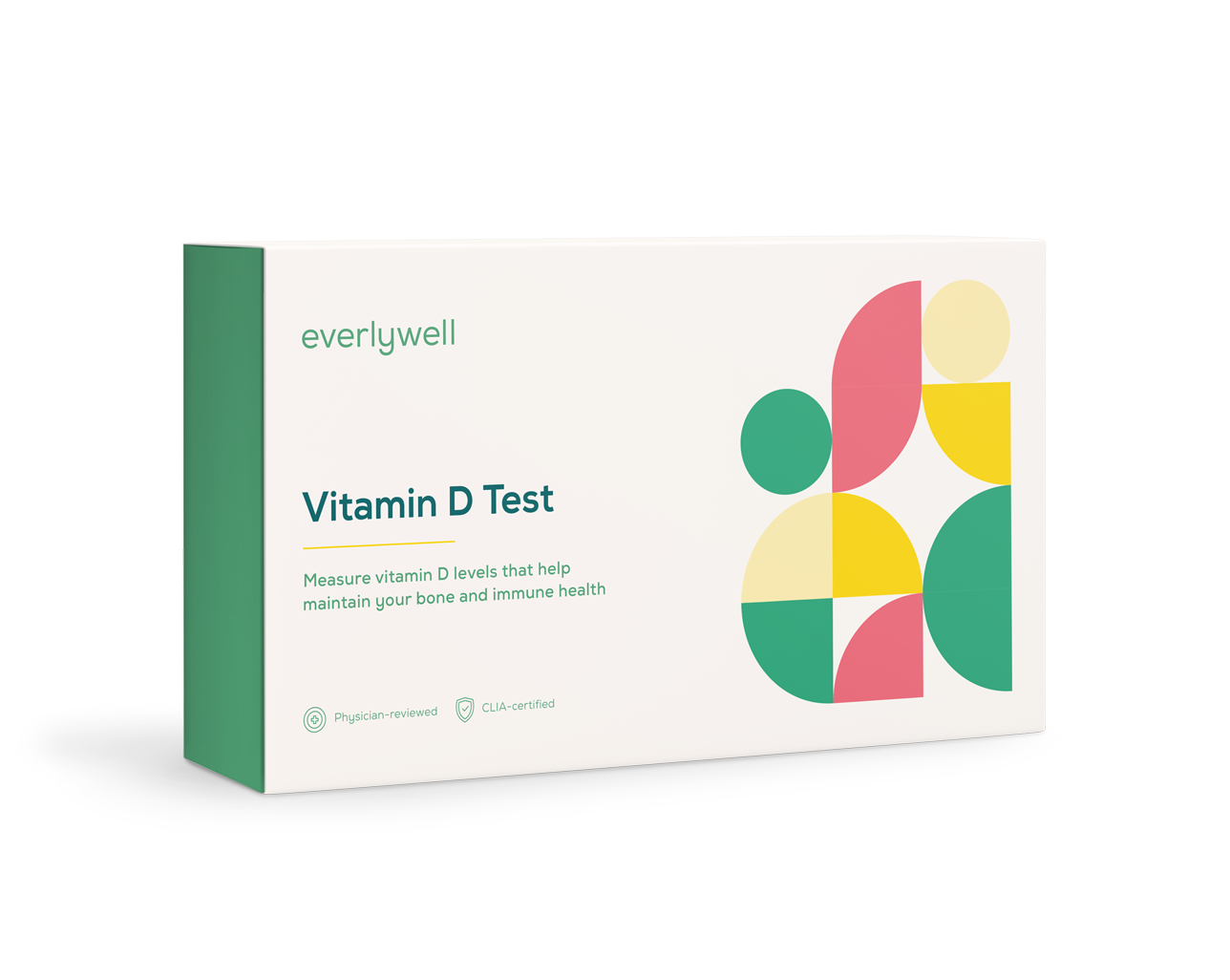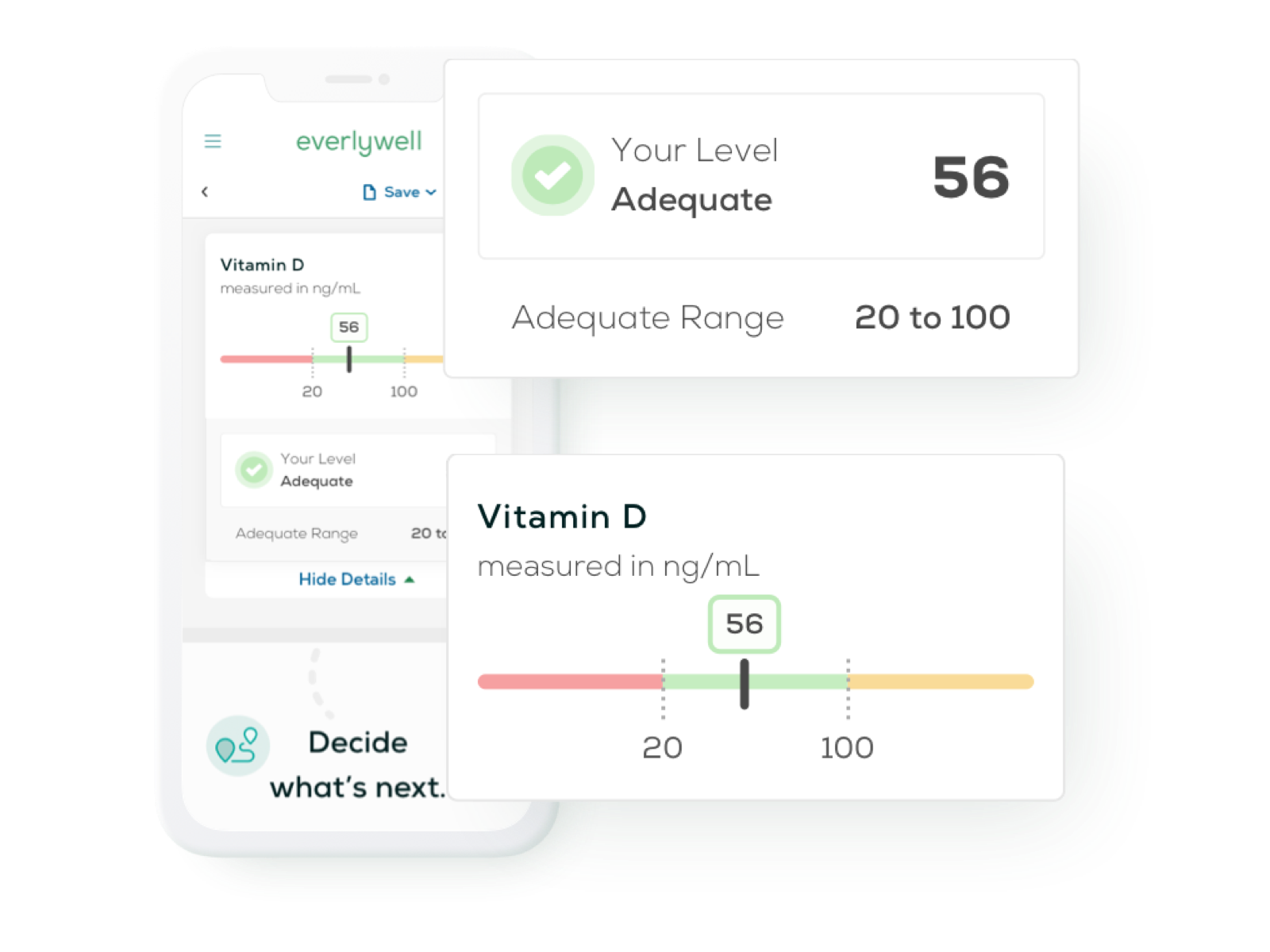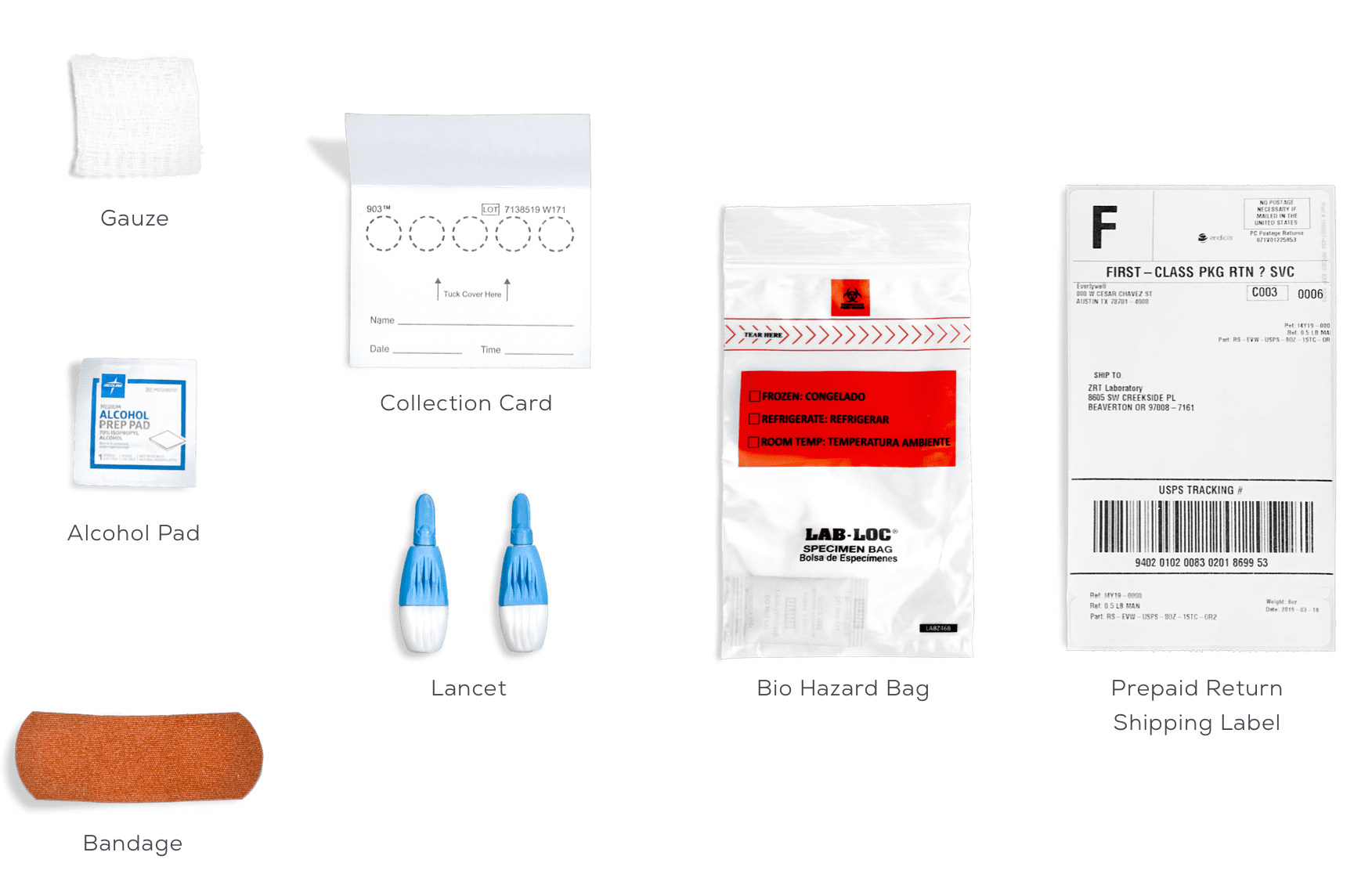








Vitamin D Test
$49
Free Shipping • FSA / HSA accepted
This at-home lab test can help you determine if you're maintaining an adequate level of Vitamin D to support bone and cellular health.
Measures 25-OH D
Finger prick sample collection
Measure your vitamin D level that supports bone and immune health









Vitamin D Test
This at-home lab test can help you determine if you're maintaining an adequate level of Vitamin D to support bone and cellular health.
Measures 25-OH D
Finger prick sample collection
$49
Free Shipping • FSA / HSA accepted
Questions?
Why is vitamin D important?
This at-home vitamin D blood test lets you test for vitamin D deficiency or toxicity in the comfort of your own home with just a simple finger prick. But why does vitamin D matter in the first place?
Vitamin D plays a vital role in the body’s ability to regulate the absorption and levels of calcium and phosphorus. It also greatly influences your ability to maintain a healthy bone structure, reduce inflammation, and promote cell growth.
Commonly referred to as the “sunshine vitamin,” vitamin D is a fat-soluble vitamin and is stored in the fatty tissues of the body, which is then released when not in direct sunlight. We typically get 50-90% of our vitamin D from the sunlight itself, with the remainder coming from our diet, where it is mostly found within fatty fish (sardines, salmon, mackerel etc.), egg yolks, and fortified dairy products.
Lack of vitamin D or severe vitamin D deficiency is also believed to cause an increased risk of serious illnesses like:
- Cardiovascular Disease
- Many Different Types of Cancer (such as breast cancer)
- Diabetes
- Dementia
- Alzheimer’s
- Erectile Dysfunction
- Infertility
- Parkinson’s Disease
- Multiple Sclerosis
- Osteoporosis
- Osteoarthritis
- Rheumatoid Arthritis
- Psoriasis
- A Variety of Autoimmune Diseases
- Fibromyalgia
- Periodontal Disease
- Schizophrenia
Some Symptoms of Vitamin D Deficiency
Vitamin D is widely known to be essential for maintaining bone health as it helps the body use calcium, but if you have low vitamin D levels there are a wide variety of other symptoms one can experience:
- Fatigue
- Depression
- Joint Pain
- Muscle Weakness or Pain
Your results will contain your personal level of vitamin D and whether it is low, normal, or high as compared to someone who shares a similar demographic profile as you (age, gender, etc.).
If your results indicate that you may have vitamin D insufficiency, we can provide guidance and general recommendations to help improve low vitamin D levels. We might also suggest other lifestyle changes that are often helpful in getting your body’s levels within the recommended range.
Vitamin D Deficiency
Low vitamin D levels can result in vitamin D deficiency. Vitamin D deficiency can lead to symptoms like fatigue, depression, and joint pain—and more. In addition, a low vitamin D level may also be linked to serious health conditions like heart disease and bone weakness (in the form of osteomalacia).
The main cause of vitamin D insufficiency is a lack of sun exposure. That’s because your body makes vitamin D when your skin comes into contact with sunlight. Dietary vitamin D sources are few and far between, so sunlight is actually the body’s main source of vitamin D. Fortunately, an at-home vitamin deficiency test that checks vitamin D levels can help you find out if you’re getting enough of this key nutrient.
Risk factors for vitamin D deficiency include the following:
- History of gastric bypass surgery
- Dairy allergies
- Lactose intolerance
- Vegan or ovo-vegetarian diets
- Fat malabsorption conditions, such as celiac disease, ulcerative colitis, and Crohn's disease
Healthcare providers often prescribe a high-dose vitamin D supplement to help reverse vitamin D deficiencies as quickly as possible. (However, because too much vitamin D supplementation can result in toxicity, be sure you talk to your healthcare provider before taking high doses of vitamin D.)
Learn more about vitamin D deficiency:
Vitamin D Toxicity
Too much vitamin D supplementation can result in vitamin D toxicity—meaning your body doesn’t have optimal vitamin D levels because it’s actually getting too much vitamin D. Toxicity is the opposite of a vitamin D deficiency, and is linked with excess calcium absorption (which can lead to a condition known as hypercalcaemia).
Fortunately, frequent sun exposure will not lead to vitamin D toxicity because sunlight breaks down any extra vitamin D in your skin.
Common symptoms of vitamin D toxicity include:
- Kidney stones
- Anorexia
- Diarrhea, constipation, nausea, and vomiting
- Bone pain
- Frequent urination
- Drowsiness
- Constant headaches
- Irregular heartbeat
How does the Everlywell at-home vitamin D blood test work?
The Everlywell Vitamin D Test is an easy way to check your vitamin D level. Here’s how it works:
(1) Once you order the Vitamin D Test kit (do that by clicking the green “Order” button on this page), we’ll ship it directly to you.
(2) Register your test online at www.everlywell.com/register using the unique kit ID that’s included in your kit.
(3) To take this blood test, use the card inside the kit to collect your blood sample. The kit includes a lancet for pricking your finger and simple instructions to guide you through the process.
(4) Once you’ve completed collection, ship your sample to a lab using the prepaid shipping label in the kit.
(5) In just days, your lab test results will be available to you on our secure, online platform.
What is vitamin D3 testing?
Vitamin D exists in the body in several different forms, one of which is 25(OH)D—or vitamin D3. Vitamin D3 tests (like the Everlywell vitamin test kit) measure the D3 form of vitamin D because this is generally the best way to determine the body’s vitamin D status.
What’s the normal range for vitamin D levels?
Medical and scientific experts have determined the approximate range for adequate or normal vitamin D levels:
- A vitamin D level less than about 30 nanograms/milliliter (ng/mL) is considered inadequate by the Endocrine Society.
- On the other end of the range, a vitamin D level above 100 ng/mL is often viewed as too high. That’s because vitamin D levels higher than 100 ng/mL increase the risk of hypercalcemia (“hypercalcemia” refers to too much calcium in the blood, which can lead to kidney stones, weak bones, and more).
- It’s important to keep in mind, however, that optimal vitamin D levels vary from person to person (depending on the health conditions someone has, for example)—so it’s a good idea to share vitamin D test results with your healthcare provider.
What will my vitamin D test result tell me?
Your vitamin D lab test result will tell you how high or how low your vitamin D level is, reported in nanograms per milliliter (ng/mL). You’ll also get practical suggestions—including ideas for maintaining healthy vitamin D levels (like getting the right amount of sunlight exposure)—that can help you get the most out of your results.
Why is vitamin D testing (or “vit D testing”) important?
Vitamin D blood tests measure your blood’s concentration of vitamin D and can help you detect a deficiency in this important vitamin. Vitamin D testing also lets you see if you’re getting too much of the “sunshine vitamin” through over-supplementation. (It’s possible to have elevated levels if you use vitamin D supplements and/or eat fortified foods that have vitamin D.)
Would you like to order this test?
Shipping Address
,